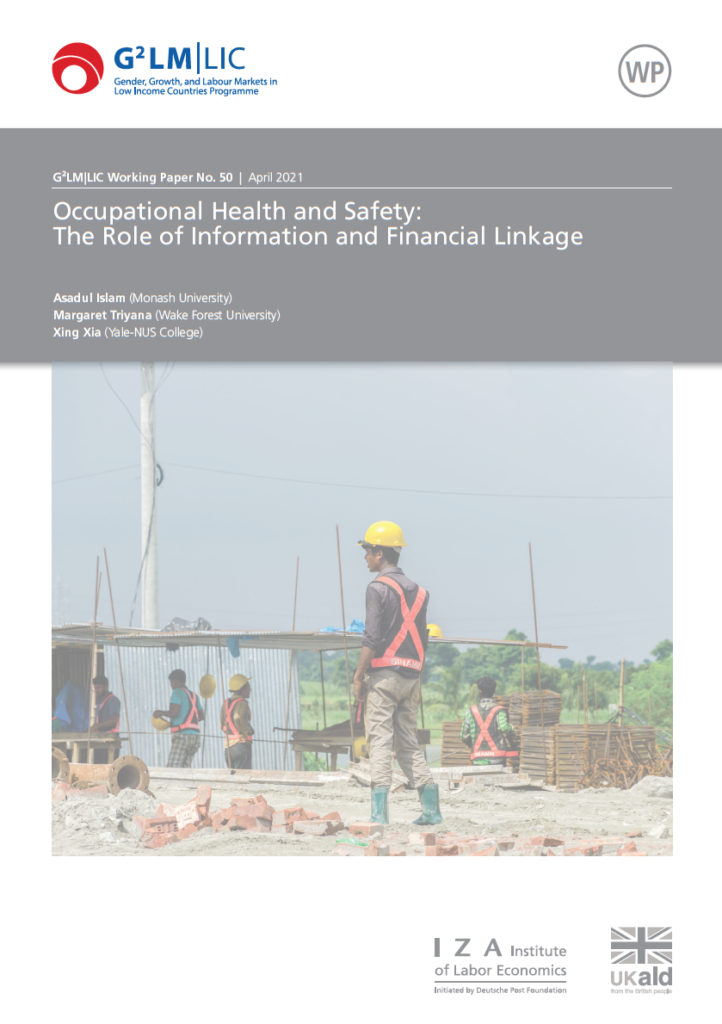Small and Medium Enterprises (SMEs) play an important role in income and employment generation in local economies, and SMEs account for a large share of businesses in low and middle-income countries (LMICs). A field experiment in Bangladesh provides informal firms information on occupational health and safety (OHS). A sub-treatment arm provides firms with financial linkages to address credit constraint. Two years after the intervention, treated firms are more likely to invest in health and safety measures and firm owners and workers have increased health and safety knowledge. Treated firms are also more likely to hire new apprentices and more experienced skilled workers and foremen. However, there is no effect on profit. The authors find no additional effect due to financial linkages, suggesting that addressing the information gap is key to improving OHS.
The findings suggest that policies to improve work environment in the informal sector should center on information on OHS. Read the working paper here.
